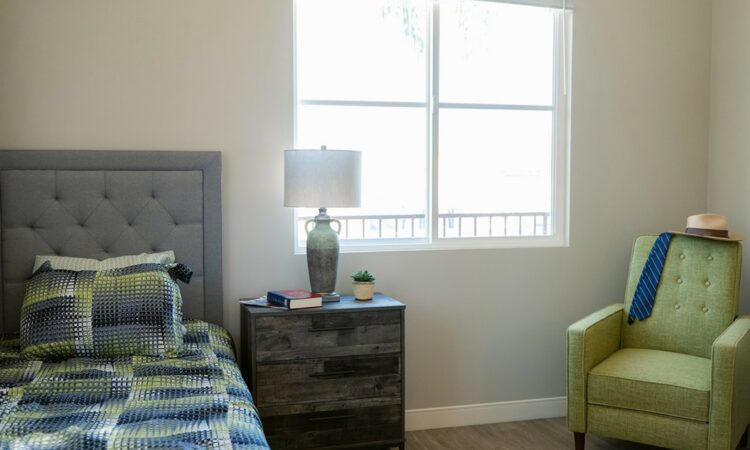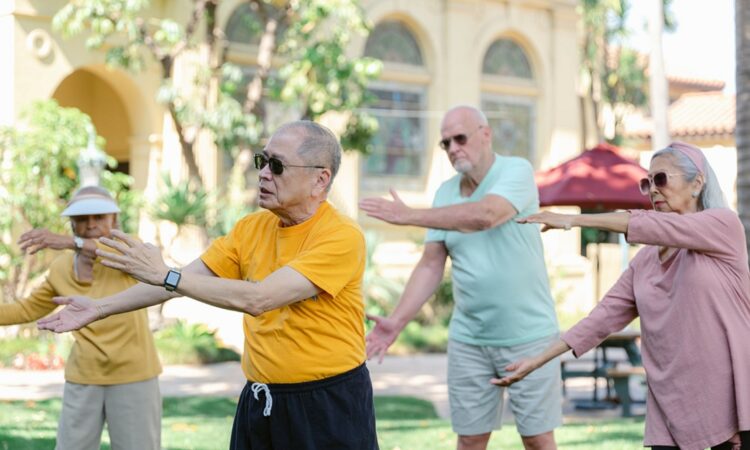Hollenbeck Palms
Sundowning: How to manage it in someone with dementia symptoms

The condition known as “sundowning” is characterized by bewilderment that sets in during the late afternoon and continues into the night. This is common in people who are experiencing dementia symptoms. Sundowning can result in various behaviors, including disorientation, anxiety, anger or the inability to follow instructions. Pacing or wandering are two more behaviors that might result from it.
Sundowning is not an illness in and of itself. Rather, it’s a collection of symptoms that only manifest themselves during a certain period of the day. People who are living with dementia symptoms may have trouble sleeping or feel increased levels of confusion, anxiety, agitation and disorientation beginning around dusk that can last throughout the night. This may cause them to wander or become disoriented (sundowning). The effects of dementia symptoms on the brain are typically to blame for these mood alterations, even though the precise origin is still being researched.
This can be unsettling for the families of those experiencing dementia symptoms, but families of Hollenbeck Palms residents should take solace knowing our staff has been expertly trained on how to care for and communicate with residents who are experiencing dementia symptoms.
The factors that contribute to sundowning
There is still more for the science and health communities to understand in terms of the causes of sundowning; however, various factors may increase the likelihood of it occurring. These may include fatigue, hunger, pain or other physical requirements that are not being addressed. Other factors could include:
- A lack of enough exposure to sunlight during the day.
- If hormone levels, which naturally rise and fall during the day, become unbalanced.
- A disability is affecting one or more of the senses.
- The time of day is a factor in some symptoms, while others might occur at any point in the day.
It is important to determine which of these issues may be causing symptoms because the solutions to each cause may be different.
Managing sleep problems and sundowning
There has been a lot of research on the correlation between poor sleep patterns and sundowning in those with dementia symptoms. Here are some tips to help counteract this:
- When the person with dementia symptoms is more attentive in the morning or early afternoon, it is best to plan activities such as doctor appointments, outings and bathing at such times.
- It is important to encourage a consistent routine of getting up, eating meals and going to bed as much as feasible.
- Walks or time spent outside in the fresh air and sunshine should be incorporated into your routine whenever possible and applicable.
- Take notes on what goes on in the hours leading up to sundowning events, and try to pinpoint the triggers.
- Lessen the amount of stimulation that occurs in the evening (i.e., TV, chores, loud music, etc.).
- Serve a meal that is more substantial for lunch and one that is less heavy for dinner.
- After the sun has set, make sure the house is brightly lit. Confusion in the individual may be alleviated by providing them with adequate lighting.
- Try to determine the types of activities the individual finds comforting, such as listening to calming music.
- Talk to their doctor about the optimal times of the day to take medication.
- If a person has problems falling or staying asleep at night, limit the time they nap during the day.
- Discuss the matter with your medical provider if these modifications to daily routines do not improve symptoms.
You should also take a Dementia-Aware approach to caregiving in terms of helping to “think for them.” Someone experiencing dementia symptoms has a “broken thinker,” which means processing information can be very difficult for them. Help guide them through their tasks throughout the day and try avoiding asking them questions, which makes them process a response. As a Dementia-Aware Certified Safe Space, Hollenbeck Palms staff is trained on how to not exhaust residents with dementia symptoms with overstimulation. Cutting down on this can help reduce instances of sundowning.
And remember: Always be on the lookout for new and worsening symptoms to ensure that these individuals are cared for properly.
That is why it is important to look for a Los Angeles memory care facility that provides the necessary resources. At Hollenbeck Palms, our staff knows how to properly care for those living with dementia symptoms through a loving care approach. Learn more about our Hensel Memory Enhancement Center here.

For more information, contact us at [email protected] or (323) 307-4505.


